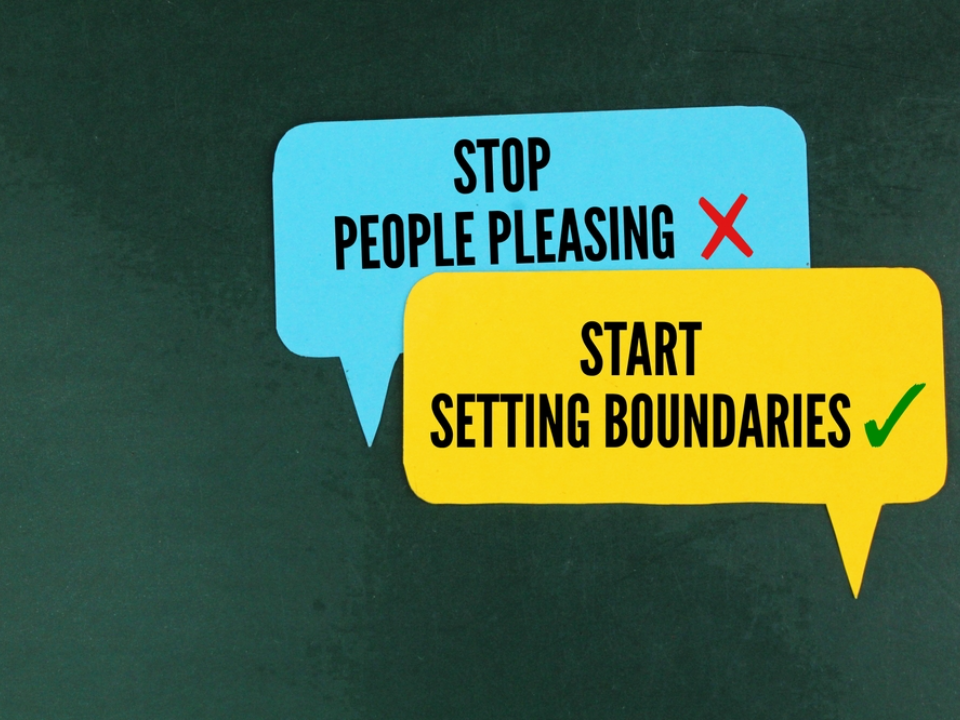15 Things You Should Quit Apologizing For Right Now
In life, we often find ourselves apologizing for things that are completely normal or necessary for our well-being. Whether it’s setting boundaries, taking time for yourself, or expressing your emotions, many of us feel the need to apologize unnecessarily. The truth is, we should embrace these aspects of our lives without guilt. It’s time to stop apologizing for doing what’s best for ourselves. Learning to stop apologizing for certain behaviors or choices can lead to a more confident, authentic, and fulfilling life.
This post may contain affiliate links, which helps keep this content free. Please read our disclosure for more info.
Setting Boundaries

Setting boundaries is essential for maintaining healthy relationships, both personally and professionally. It is crucial to protect your time and energy, and you should never feel the need to apologize for putting yourself first. Many people struggle with saying no or pushing back on demands, fearing that it will make them seem difficult or unkind. However, boundaries are a sign of self-respect and are vital for long-term well-being.
When you set boundaries, you communicate your values and limits clearly to others. Doing so can lead to more fulfilling and respectful interactions. It allows you to maintain control over your time and prioritize what matters most. Stop apologizing for taking care of your needs; it is necessary for a balanced and healthy life.
Saying No

Saying no can be challenging for some, especially when it feels like you might disappoint others. However, you are not obligated to say yes to every request or invitation that comes your way. Saying no is a form of self-care and allows you to preserve your energy for the things that are most important to you. Apologizing for it sends the message that your time and well-being are less important than others’ expectations.
No one can do everything, and overcommitting often leads to stress and burnout. By saying no when needed, you protect your mental and physical health. Recognizing that it’s okay to decline requests empowers you to make decisions based on your needs, rather than feeling pressured into pleasing others.
Taking Up Space

Everyone deserves to take up space in the world, both physically and metaphorically. Women, people of color, and other marginalized groups, in particular, have often been taught to minimize their presence. It’s time to stop apologizing for occupying space, whether that means speaking up in meetings, expressing opinions, or simply existing in a space where you feel comfortable.
Taking up space is not a sign of arrogance or entitlement. It’s an expression of self-worth and confidence. When you embrace your right to occupy space, you send the message that you deserve to be heard and valued, just as much as anyone else.
Asking for Help

Asking for help is often seen as a sign of weakness, but this couldn’t be further from the truth. Reaching out for support is a strength, not a flaw. Everyone needs help from time to time, whether it’s with work, emotional support, or practical tasks. Stop apologizing for recognizing that you cannot do everything alone.
Being open to help allows you to grow, learn, and avoid unnecessary stress. People who ask for help build stronger, more supportive relationships. It’s important to understand that no one is expected to have all the answers, and asking for assistance is a normal part of life.
Taking Breaks

In a world that often glorifies hustle and constant productivity, it’s easy to feel guilty for taking a break. However, taking regular breaks is necessary for mental clarity, creativity, and overall health. It’s essential to stop apologizing for needing time to recharge, as it helps you perform better in the long run.
Taking breaks can be as simple as stepping away from your desk or taking a moment to breathe. It prevents burnout and helps you return to tasks with renewed focus. Breaks are a key part of maintaining a healthy work-life balance and should not be seen as a luxury or something to feel guilty about.
Expressing Emotions

Emotions are a natural part of being human, and expressing them is an important aspect of mental health. Whether you’re feeling happy, sad, angry, or frustrated, it’s okay to show how you feel. Many people apologize for being emotional, especially in situations where emotions are perceived as inappropriate. There is no need to apologize for experiencing or expressing emotions.
Emotional expression can help you process feelings and communicate your needs to others. It fosters empathy and deeper connections with those around you. Instead of holding back your emotions, let them out in a healthy way and stop apologizing for being human.
Prioritizing Yourself

Self-care is not selfish. Prioritizing your own well-being, whether through exercise, hobbies, or quiet time, is essential to staying healthy and balanced. It’s time to stop apologizing for choosing to take care of yourself. When you prioritize yourself, you are better able to support those around you.
By taking care of yourself, you improve your physical and mental health, making you more present and available to others. It is not only acceptable but necessary to put yourself first at times. Prioritizing yourself is an act of self-respect and ultimately strengthens your relationships with others.
Being Imperfect

Perfection is an unrealistic standard that can lead to unnecessary stress. It’s time to stop apologizing for being imperfect. Everyone has flaws and makes mistakes; this is a natural part of being human. Instead of apologizing for your imperfections, embrace them as part of your growth and learning process.
Imperfect moments often lead to valuable lessons and new experiences. By accepting that you don’t need to be perfect, you can let go of unrealistic expectations and live a more fulfilling life. It’s okay to make mistakes, and it’s okay to not have everything figured out.
Speaking Your Mind

In many social and professional settings, there is pressure to stay silent or keep opinions to yourself to avoid conflict. However, speaking your mind is crucial for personal integrity and healthy relationships. Stop apologizing for expressing your thoughts, even if they are unpopular or controversial.
When you speak up, you contribute to meaningful conversations and can inspire change. Speaking your mind also allows others to understand your perspective. It’s important to communicate openly and honestly without feeling the need to apologize for your voice.
Taking Time for Yourself

In a society that often prioritizes family, work, and other obligations, it can be difficult to take time for yourself without feeling guilty. However, making time for solitude is essential for emotional well-being and personal growth. Stop apologizing for needing time alone to reflect, recharge, or pursue personal interests.
Taking time for yourself is a form of self-care that strengthens your ability to care for others. Whether it’s a quiet evening, a day off, or a weekend retreat, these moments allow you to reconnect with yourself. It’s not selfish to take time for you; it’s necessary.
Changing Your Mind

It’s natural to change your mind as you gain new information or perspectives. However, many people feel the need to apologize for doing so, as if it implies weakness or inconsistency. Stop apologizing for evolving your views or decisions; growth often involves reevaluating past choices.
Changing your mind shows that you are open to learning and adapting to new circumstances. It’s a sign of strength to admit when something no longer serves you or when a better option becomes available. Don’t let fear of judgment stop you from making the best decisions for yourself.
Looking After Your Mental Health

Your mental health is just as important as your physical health, yet it often takes a backseat in conversations about well-being. Taking care of your mental health can involve therapy, meditation, or simply taking a break. Stop apologizing for prioritizing your mental well-being.
By focusing on your mental health, you are taking an important step toward long-term happiness and stability. It’s vital to treat mental health with the same importance as physical health. Taking care of yourself mentally allows you to show up fully for others.
Pursuing Your Passions

Pursuing your passions is often seen as a luxury or something to feel guilty about, especially when there are so many responsibilities to juggle. However, chasing your passions is an important part of living a fulfilling life. Stop apologizing for dedicating time to the things that excite and inspire you.
Whether it’s art, writing, travel, or a hobby, these activities bring joy and purpose to your life. When you pursue what you love, you become more engaged and energized in other areas of your life as well. Embrace your passions without guilt—they are what make life truly worth living.
Taking Responsibility for Your Own Happiness

Your happiness is ultimately in your hands, and it’s time to stop apologizing for prioritizing it. Many people feel guilty for focusing on their own happiness, especially if it doesn’t align with others’ expectations. However, it is perfectly acceptable to make choices that bring you joy, even if they are different from what others expect.
When you take responsibility for your own happiness, you are less likely to rely on external sources for your well-being. This empowers you to make choices that align with your values and needs. Embrace the idea that you have control over your own happiness and stop feeling guilty for owning it.
Celebrating Your Success

It can be difficult for some people to celebrate their achievements without feeling the need to apologize. However, recognizing your accomplishments is an important part of self-recognition. There is no need to apologize for being proud of your hard work or success, no matter how big or small.
Celebrating your success is not about boasting; it’s about honoring the effort you’ve put in. Acknowledging your achievements motivates you to keep striving and serves as an inspiration for others. Own your success with confidence and stop downplaying it to make others feel comfortable.
This article originally appeared on Avocadu.
